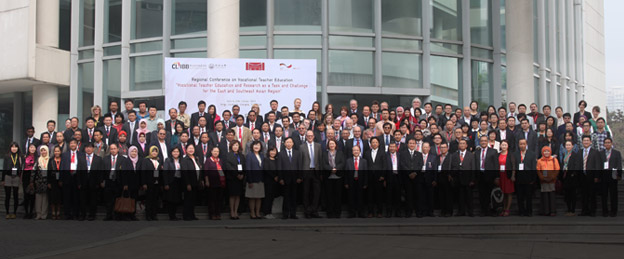Vocational Pedagogy Approaches Framework for Malaysian Engineering TVET Teachers
Vocational Colleges (VC) play an important role in producing a skilled and semi-skilled workforce in Malaysia. Consequently, TVET teachers must master the occupational... Read more.
An extensive model for implementing APEL and quality assurance in TVET teacher training system for South East Asia
Accreditation of Prior Experiential Learning (APEL) is a relatively new concept in the Malaysian Higher Education system (HEIs) and in South East Asia in general,... Read more.

